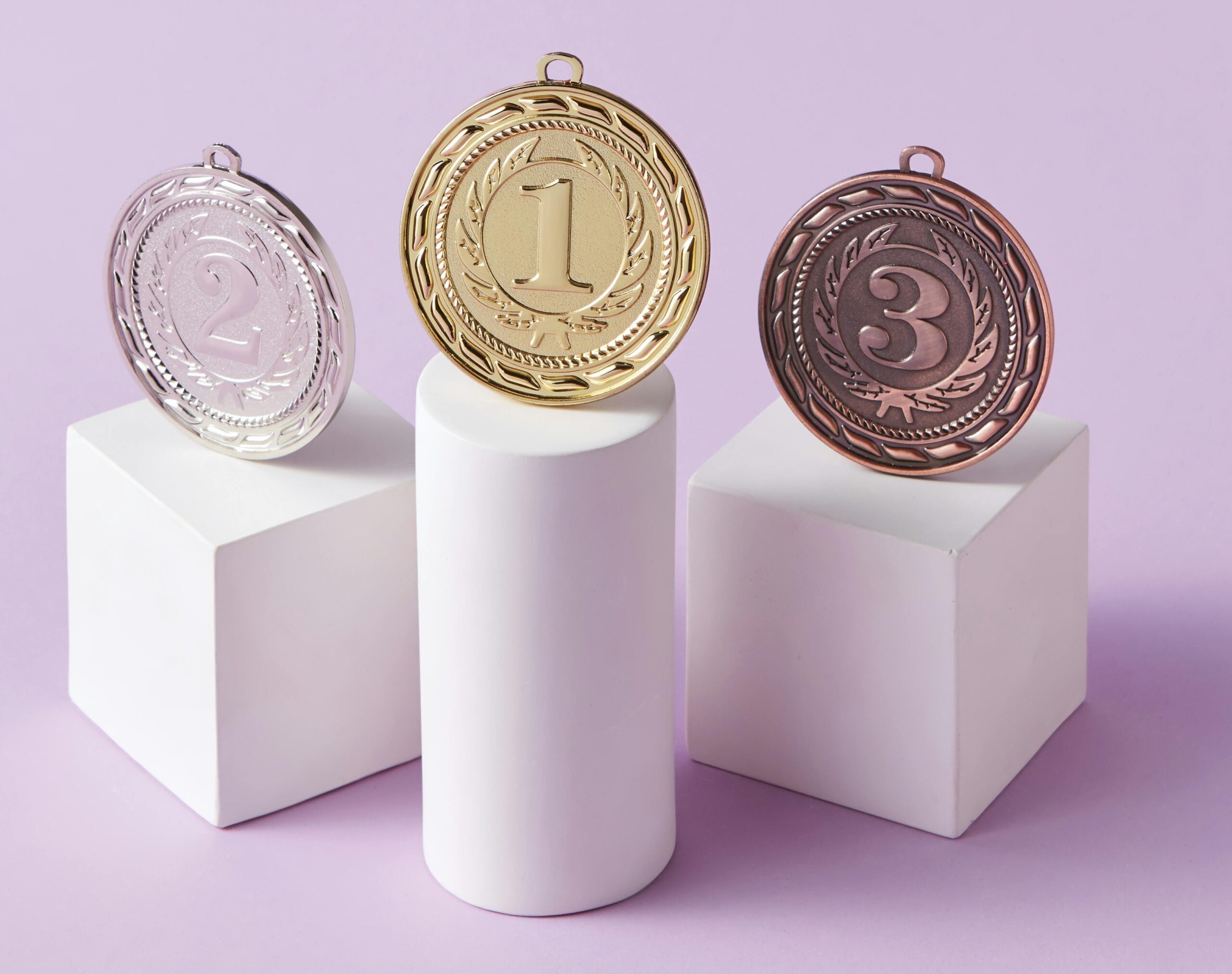I recently ran across a great post from Paul Artale, PhD on the benefits of speech competitions. I repeat his 3 main points here. Let me give credit where it is due. These 3 bullet points are copied from his webpage: https://paulartale.com/the-benefits-of-speech-competition/)
- Competition makes everyone better: including you. It’s simple: the more competitors there are, the harder people will work to be the best. Increased participation leads to an increase in innovation and originality. Think about it: how hard would you try if you had to beat one person versus five, ten, or twenty?
- You get to meet fantastic new people. The Toastmaster universe definitely expands as a result of competition. I can’t tell you all the wonderful people I have met through the contest. I was pleasantly surprised how supportive Toastmasters were to all contestants. They really wanted everyone to succeed and do their best.
- Makes you a more concise and precise speaker. You have a clock, a speech, and one chance to make it all fit perfectly. It’s a great deal of pressure but the effort put into word choice, movement, pausing for audience laughter (and tears) teaches you how precious time is. In a meeting if you go over/under time it’s no big deal. In competition, it could mean disqualification.
This all sounds well and good, but if I am being completely honest here – I don’t fully buy it. Yes, Competition makes everyone better: including you. But the number of competitors is not really the issue. I don’t need 100 competitors for a great competition, just one other person who is fully committed will do. When people target a competition that comes around once per year, and work towards that end, we can have a strong contest with only a few bodies. Three serious Toastmasters in a competition is more of a challenge than 50 people just winging it for fun.
Sure, You get to meet fantastic new people. But any performance art involves at least 1 hour by yourself, for every minute in front of a group. If you are competing for the sake of the exposure to other folks, there are a lot more efficient ways to make that happen. It is true that the prep for a contest will, Make you a more concise and precise speaker. But again, there are a lot more efficient ways to go about that.
I think we need to look at the numbers involved in a different way. A Toastmasters club averages about 20 people. Clubs are organized into Areas and an Area typically has 5 clubs. Areas are organized into Divisions and a Division typically has 5 Areas. Divisions are organized into Districts and my district has 6 divisions. Thus, a club is 20, an Area is 100, and a Division is 500, and a District is around 2,500 people. If you win a contest at a Club, Area, Division, or District level (Shameless Plug Alert: As I did on Saturday!) did you really defeat 20, 100, 500, or 2500 people?
From what I have seen, a typical club contest will have 3 or 4 people – not 20. This suggests that 80 – 85% of the club members didn’t compete. It’s easy to understand why. It’s scary, it takes effort, and the grand total of cash and prizes is $0. So, when you win the contest, you didn’t “defeat” 20 people – you just outdid 2 or 3.
So, are you a champion if you win, or just an impostor that got lucky because a lot of the “best” speakers didn’t really try? There are at least 2 schools of thought here. First, “If they didn’t try, you can’t claim that you beat them.” The other approach is something like, “If you don’t try, you’ve already failed.” I like a few other versions of this sentiment a bit better. “If you don’t fail, you’re not even trying – Denzel Washington.” “If you ain’t aim too high, then you aimed too low – J. Cole.” In another speech that is sometimes called The Greatest Speech Ever Made, Theodore Roosevelt stated, “His place shall never be with those cold and timid souls who neither know victory nor defeat.” OK, that’s a bit too dramatic for this topic, but the message is that the many who chose not to try should not be considered superior to the few who do.
The main issue in public speaking; the 800 pound gorilla in the room is – FEAR! You get into this (in part) because you aim to master that fear. I can find 1000 reasons not to try, but I can never escape the fact that Fear is in the mix someplace.
So, if you win the contest, you did something that 19, or 99, or 499, or 2499 other people had a chance to do, but did not – for whatever reason. Does that outcome mean you are “better?” Absolutely not! Does it mean that whatever credit has been earned is yours, and cannot be watered down by those who didn’t try – hell yeah!
But we can take this a step further. If you survey 1000 professionals and ask if getting better presentation and/or speaking skills would have real value to them, I am willing to bet that at least half of them will say – of course! So, 500 out of 1000 people know that they need to work on something. Out of that number, how many will even take the first step; be that joining a club, taking a course, or working with a coach? If we are being generous, the answer may be as high as 10%. Now we are talking about 50 out of the original 1000 people.
My experience in Toastmasters has shown me that the most common pattern is that someone joins, does 1 or 2 speeches and then disappears. They overcome the fear once, and then try again, only to find that it doesn’t get easier as fast as they had hoped, and they walk away. The remaining 25 are the people you see in the meeting. I claim that those 25 have done more to get better than the 475 other folks who know they could extract value from being there. This means that if you are the best in this group, you have really done more than that 475 – not just the 20 or 25 who showed up.
Its easy to dismiss the winners of these “little” contests, but the key question is, if you want to say that what they did is nothing – ask yourself how does that compare to what you did? Remember, 80% of success lies in showing up!!!



